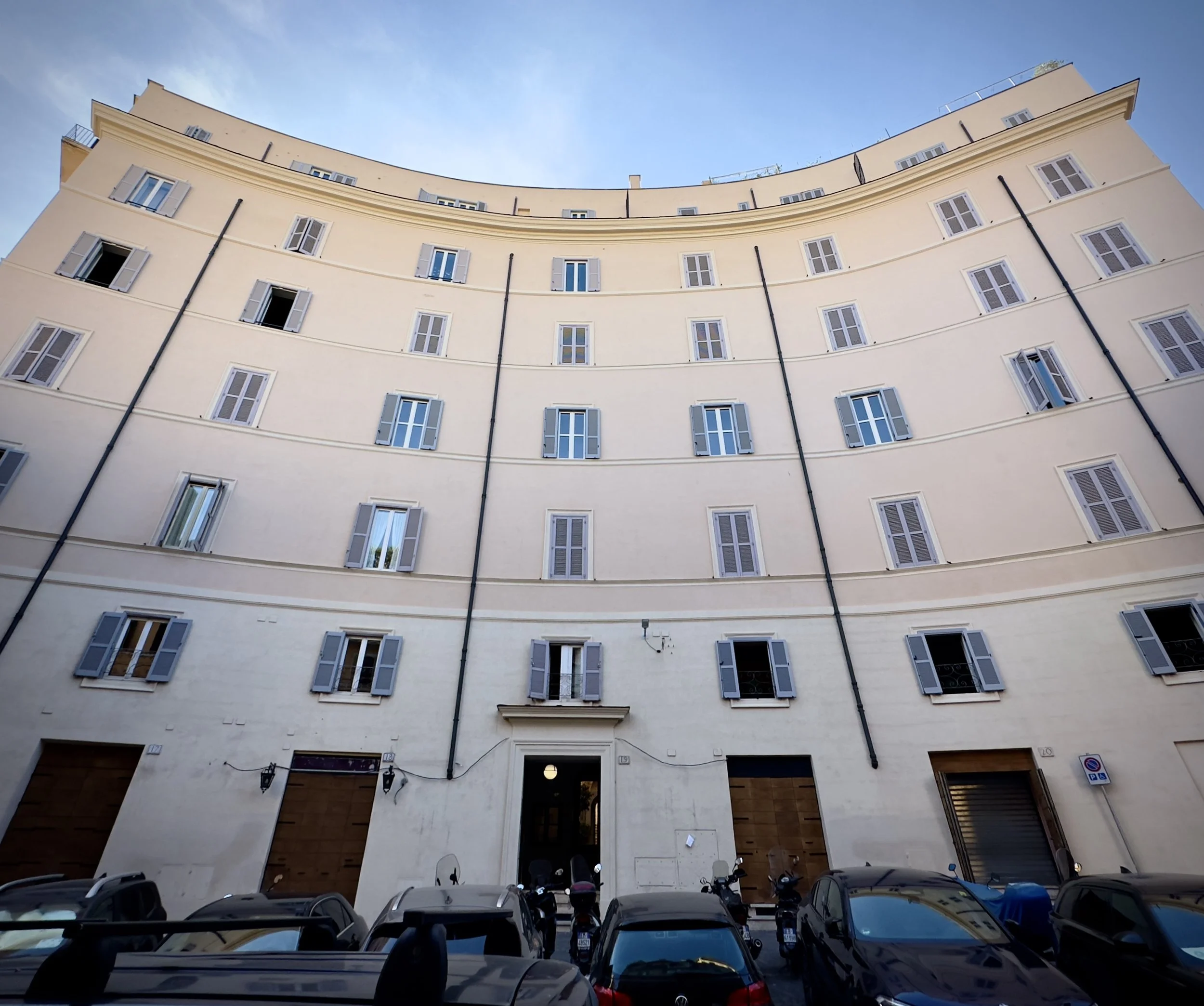HAIL, CAESAR!
Site of the former Theater of Pompey
Julius Caesar may be the most important non-religious figure who ever lived. My personal opinion crowns him the Most Interesting Person of All-Time. He’s my ready answer to the ‘if you could have dinner with one person from history’ question. Here are some reasons why.
Gaius Julius Caesar was a man of stupefying accomplishment and bewildering contradictions. He was a brilliant orator, politician, writer, and military leader. He was also a risk-taker, a shameless womanizer and a dandy. He was renowned both for his mercilessness and his clemency, his good luck and cunning. In fact, until Caesar changed the rules, deceiving the enemy to gain an edge in battle was seen as dishonorable. But he used that tactic to great effect, especially in the Gallic Wars.
Caesar lived to change the rules. It’s a recurring theme throughout his life. And his life is one that lends itself to relay by a series of vignettes. Here’s one of the most revealing: He was once kidnapped by pirates. When he learned they wanted 20 talents of silver for his release, he felt that was insufficient for a man of his status and convinced them to increase the ransom to 50. A talent was a heavy weight - 57 pounds in some cases, so this was a king’s ransom. His captors obliged. While they waited for payment, he recited his poetry to them and ordered them to keep quiet when he was trying to sleep. He joked with them that he’d see them all crucified for their crime.
Soon the ransom was paid and Caesar was released. He immediately called up a military force which soon found the pirates. They were captured and quickly learned he wasn’t joking about their punishment. He crucified all of them. But out of a sense of camaraderie, Caesar ordered their throats cut first so they wouldn’t have to endure the slow torture of that particularly cruel form of execution.
Why a modern-looking building in the middle of Rome is important to the story of Julius Caesar
What’s remarkable about this story isn’t only his grand sense of self, his thirst for vengeance, and his hint of mercy; it’s also his mobilization of a military unit and ordering of extrajudicial killings, neither of which he had the authority to do. He wasn’t an elected official. He was a kid in his 20s, studying philosophy in Greece. He was nothing if not audacious where rules were concerned.
A telling example of his propensity for risk is his well-known gambit of crossing the Rubicon. It may surprise you to learn this was likely a spontaneous decision rather than a calculated one. We don’t know with certainty where the Rubicon was; rather than a large river as one might imagine, it was probably a stream whose path has changed, if not dried up, over the centuries. Mussolini designated a Rubicon that exists today. While there’s some evidence suggesting it was the one from Caesar’s time, that hasn’t been proven.
SPQR - Senatus Populusque Romanus - was a marker of the Republic: The Senate and People of Rome. Its use would fade after Caesar’s death precipitated the rise of the Empire.
What mattered most was that the Rubicon was a northern boundary of Rome. Crossing it with an armed military was illegal, and Caesar likely would have been prosecuted for corruption and exiled or worse had he given up his command or ‘imperium’ before crossing, as the law required. His other option, he reasoned, was to seize power.
We often hear that he spoke about the crossing by saying “the die is cast.” According to scholar Mary Beard, however, the translation of his Greek words is more accurately rendered “let the dice be thrown.” This may appear a subtle distinction, but the familiar translation has a sense of inevitability about it in contrast to the sense of uncertainty the more accurate translation conveys. Furthermore, his choice to cross is described as impulsive. It’s interesting to think that one of the most momentous decisions in history was essentially made by flipping a coin.
For centuries, the Roman Calendar was based on a lunar year of 355 days. Over the years, the calendar would drift out of sync with the seasons. It would say December, but the spring flowers would be in full bloom. Periodically Rome would add an extra month to realign the calendar with the seasons, but this was imprecise, and recalibration was soon needed. Consulting with Greek astronomers, Caesar made the 365-day year we still follow today. He created leap year, adding an extra day every 4 years to account for the precise time it takes the Earth to circle the Sun. The year 46 BC is acknowledged as the longest year in history since Caesar added 4 months to ensure January 45 BC started in January. To honor this and his other achievements, the Senate changed the name of the 7th month from Quintilus to Julius, the basis for the name of the month we call July.
Sidebar: The Gregorian Calendar we use today is essentially the Julian Calendar of Caesar except for a minor adjustment that removes 3 Leap Days every 400 years. Pope Gregory XIII launched it by official papal bull in 1582.
We now use February 29 as our Leap Day but that hasn’t always been the case. Up until the 14th century, the calendar repeated February 24. The switch to using 29 no doubt cleared up a lot of confusion around the question, where were you on February 24th? Well, which one …?
While his capacity for good was immense, Caesar could also be unimaginably monstrous. He’s said to have murdered one million Gauls (ancient inhabitants of modern-day France) and to have enslaved a million more. He didn’t spare women, children or the elderly in combat.
He wasn’t above using force in his political dealings, once calling for thugs to remove a filibustering Cato the Younger from the Senate. He’s also said to have executed political enemies after seizing power, though there is some skepticism about this claim.
Illustration of a coin issued by Brutus following Caesar’s assassination. The cap of liberty on the reverse alludes to Romans being freed from servitude, and EID MAR marks the day of the murder - the Ides of March.
On the other hand, his largesse was unmatched. He gave generously to the common people, the plebeians, both during his life and with a bequest to them in his will. He was a fierce advocate for his soldiers, seeking land for them in exchange for their loyal service (a common theme, as we’ve seen). He was generous to his political allies, bestowing on them titles and lucrative appointments.
The reasons for Caesar’s downfall are many but boil down to some Senators’ perception that he sought kingship. As we’ve discussed, this was anathema to Romans of the day.
Caesar’s biggest mistake was not disabusing them of this notion. He wore red boots like the kings of old had done. He sat on a raised chair like a throne. On one occasion, he refused to stand when greeted by a group of Senators. This was a mark of deep disrespect which his supporters rationalized away by saying he was afraid of having an accident on account of a bout of diarrhea.
After receiving a series of bad omens, he was reluctant to attend the Senate on the Ides of March. But one of the Senators told him they were prepared to name him king, but couldn’t if he didn’t attend, and may later change their minds. This did the trick. Caesar attended and was summarily assassinated. The great irony is that Rome would effectively have a king in Caesar's successor, his great-nephew Octavian. This first emperor, later called Augustus, learned from his great uncle's mistakes and savvily framed his absolute rule as a return to republican virtue. It helped tremendously that at that time, Romans were weary from a decade of civil war, and freely traded some freedom for security.
But that’s getting ahead of ourselves. Turning back to great-uncle Julius, one sees his lists of good and bad deeds are endless. Suffice to say that for every positive you can say about him, there’s a dark, balanced negative. These opposing qualities make it impossible to come to a single conclusion - was he a servant of the people or a genocidal tyrant? We see similar dualities throughout Rome’s history and all lead to conflicting conclusions.
Caesar therefore is not only an enthralling figure but the very symbol of the contradictions that make ancient Rome so fascinating. Hail, Caesar indeed.




